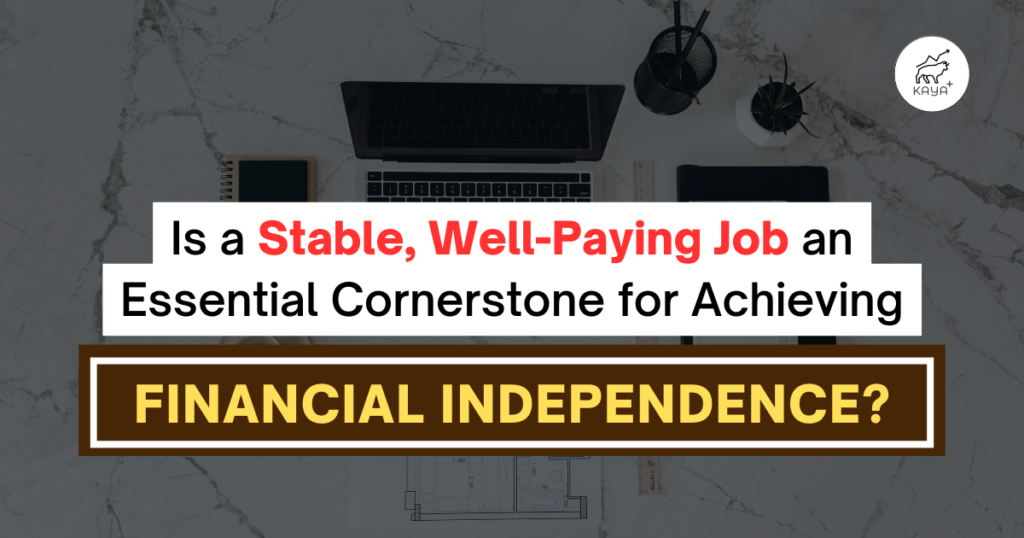Achieving FI: A stable and well-paying job is an important cornerstone


A job and Financial Independence (FI) via investing may seem mutually exclusive of each other on the surface.
However, if you drill down the blueprint of achieving FI via investing, having a well-paid and stable job is a precursor to FI.
In my first substack post, I briefly covered what I call the investor flywheel. Borrowing that adage from Jeff Bezos, the more we earn from our main occupation, the more we can plow into building up our portfolio.
So, if that holds ground, even if your ultimate goal is to achieve FI, your first deliverable is to get a stable and well-paying job.
Defining well-paid
Investing is sadly not for the masses. Especially if it’s aggressive portfolio building instead of pure participation.
A well-paying job without figures is vague. Personally, if you have a take-home pay that after all expenses, allows you to have a net savings of a few thousand, i.e. $2,000, that is a well-paid job as a start.
The definition of a well-paid job is not static nor a blanket statement. A single man or woman earning $3,000 a month, while managing to save $2,000 can consider their pay well-paid at the period of time.
On the flip side, a sole breadwinner in a family of 3, earning $5,000 yet only managing to save $500 cannot consider his job well-paid.
Effective investing has always been making a choice of putting away money that you do not need at the current moment to work for its future potential and return.
Saving just $500 while not even portioning some amount out for emergencies can be precarious if any unwanted events happen.
The punchline: So long as you are bringing in an amount of monthly pay, which allows you to portion an amount of $1,000 and above to be invested in, you can count yourself having a decently paid job for the time being.
Defining stable
Boy, this is where it gets complex.
Stability means differently in different aspects. It is not easy to achieve stability in all aspects.
Different sectors have different stability. Fast-moving consumer goods tend to be more stable than oil and gas, though in terms of remuneration, could be less generous as well.
I think the crucial bit is the mental and personal perspective.
Are you happy, satisfied, and can work for many years to come at your current job?
If yes, that presents itself as a favorable job stability.
The rationale is straightforward – if your main job is going to take up all of your time and energy, you would most likely not be able to spend time on stock picking.
However, if the pay is generous enough, opting to invest a chunk of your funds passively via index funds should prove to be an effective method to compound wealth.
Each job is different from one another. As long as you can bear with either the pay or the stress and remain fully functional for other aspects of life, it is considered stable to a certain extent.
A tough balance between well-paid and stability

The higher the pay of a job, the higher the stress levels it induces as well. But the more financial stability it brings, although one might argue lesser mental stability as well.
It is up to us to define what ticks the boxes of all aspects for each and every one of us.
No point if a job pays you well, yet you do not feel at peace, or it saps away all your energy.
I’d argue that a well-paying job is dynamic. A new job always starts off as a well-paying one, since it is the main push factor apart from any career progression.
But if the increment is slow, or if the pressure is too much, that job that you applied for, might be turned out not to be one that provides stability.
And if what you spend most of your time doing daily is not stable, it could have some effects on achieving FI.
It is ironic, that the path to accrue and compound more money, requires more money.








